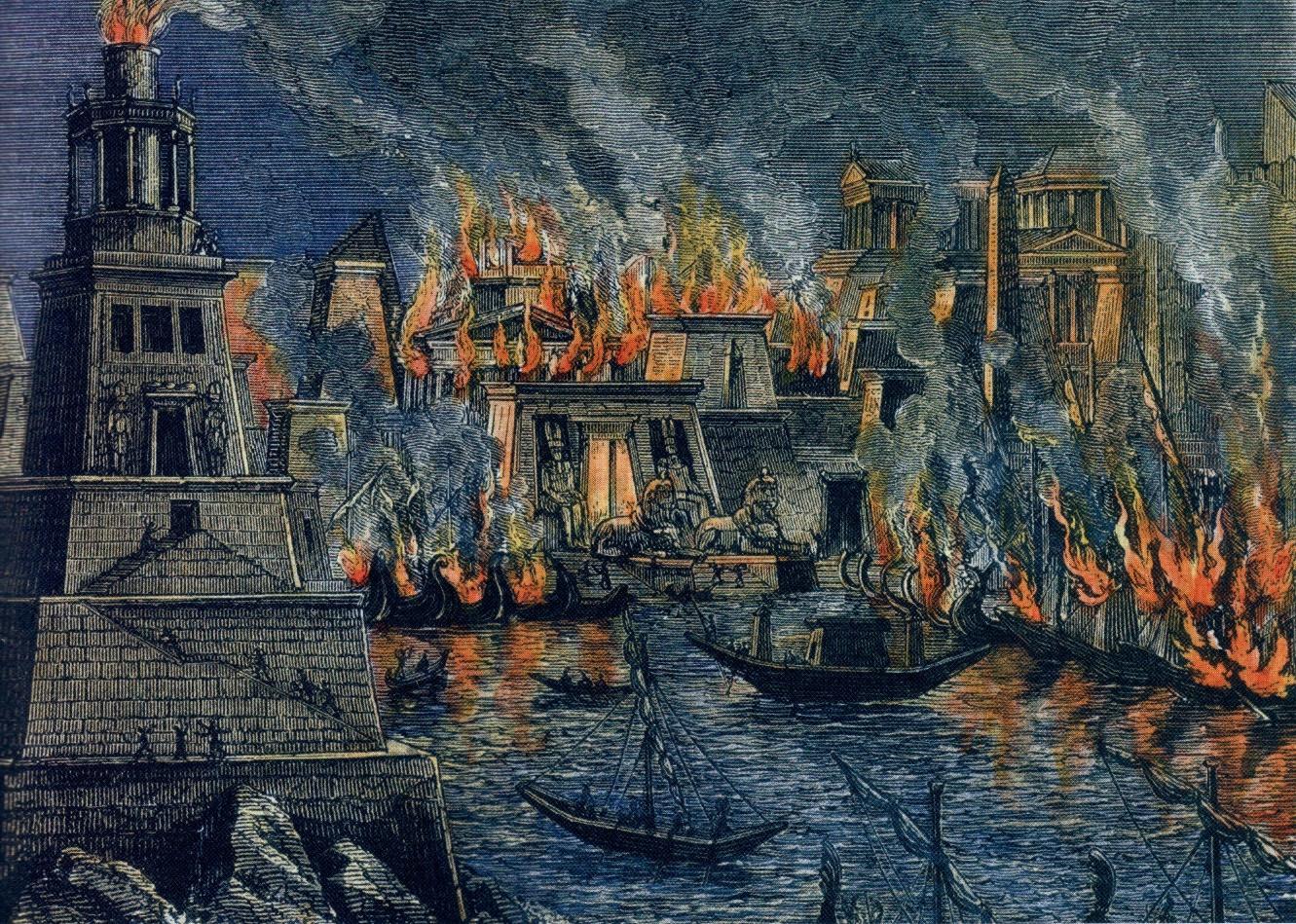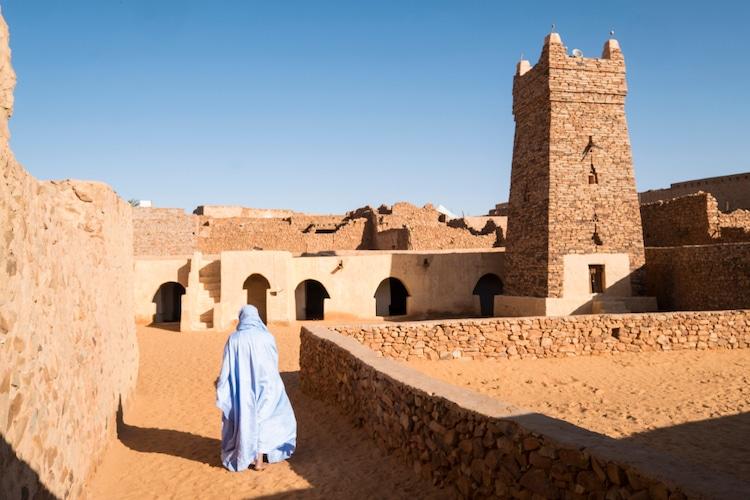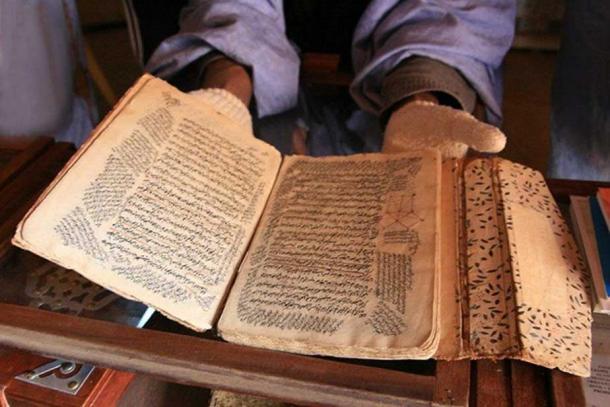Questions are often raised about what the world would be like today if the Library of Alexandria hadn’t been burned.
Would we have already traveled and colonized other planets? Would we have discovered time travel? What about flying cars (even though they hardly make any sense)? Would we have uncovered the elixir of immortality?
It's crazy to think about, right? All that knowledge, just… gone.
Because let's be real, the knowledge locked away in those ancient scrolls was mind-blowing for its time.
But how did it all go wrong?
Well, picture this: Cleopatra and her brother Ptolemy XII are locked in a battle for the Egyptian throne. Enter Julius Caesar, the Roman general, who decides to throw his weight around and orders all the Greek warships chilling on the coast to be set on fire.
Now, you'd think a fire on the water would stay on the water, right? Nope. This fire had other plans and decided to jump onto land. And guess what was just a stone's throw from the coastline? Yep, the Library of Alexandria. So, up it went, taking centuries of wisdom with it.

Image 1: Burning of the Library of Alexandria. Courtesy: Wikimedia Foundation
Medicine, literature, art, music, philosophy - poof! Gone! All those books turned to ash.
You'd think that after a historical gut punch like that, we humans, especially us Africans, would be super careful with our old libraries. But guess what? History seems to have a funny way of… well, repeating itself, or at least rhyming.
Because buried deep in the Sahara, in a quiet town called Chinguetti, is another library story unfolding.
To understand this, let’s travel back to the 8th Century, when trading was a major commercial activity across the Sahara Desert.
In one of the areas where several trade routes cut across, a stopover/outpost known as Chinguetti popped up.
Many caravans on their way to the Mediterranean would stop here to let their camels rest, as well as sell some of their wares.
It is estimated that Chinguetti could accommodate at least 30,000 camels at any one time. That's a whole lotta humps!
Soon enough, the area became a stopover for Islamic pilgrims on their way to Mecca.
As thousands of learned men passed through this place, an exchange of religious and scientific ideas took place, and the reputation of the small city flourished.
Over time, a mosque was built, but the major consequence of this was the establishment of libraries, which were built to store the religious texts left behind by these pilgrims as they continued their journey.
But it didn't stop there. Chinguetti blossomed from a simple stopover into a real intellectual hub. Scholars began visiting the town, and in addition to the religious manuscripts, works from a variety of subjects such as astronomy, law and medicine were also stored in the libraries. And so, more libraries were built to accommodate these new texts.
Now, fast forward a few centuries to the Scramble for Africa, when European powers were drawing lines on the map like it was a giant coloring book. Chinguetti ended up inside the borders of Mauritania.
By the 1950s, there were still around thirty libraries open to the public.
But then, disaster struck. A major drought hit the area, and it was brutal. The result? Only about five of those libraries are still around today.
And the crisis didn’t stop there..…
Out of those five remaining libraries, three are on the brink of collapse! And because of security concerns in the area, they're not even open regularly. So, tourism, which could help bring in some much-needed support, has taken a nosedive.
Chinguetti was named a UNESCO World Heritage Site in 1996. You'd think that would be a big boost for preservation. Sadly, it doesn't seem to have been enough.

Image 2: The libraries. Courtesy: Intertourist
Here's the thing: these libraries are all private property. They're looked after by the same families who've been passing them down through generations. That's a beautiful tradition in a way, but the books themselves are just sitting on open shelves, exposed to the harsh desert climate.
Imagine ancient manuscripts just baking in the sun and getting blasted by sand every day. Not ideal for preservation, is it?
The government of Mauritania has made attempts to acquire these delicate manuscripts from their keepers so that they could be preserved, but the families have refused to part with their legacy.

Image 3: Manuscript in a private library in Chinguetti. Courtesy: La Mauritanie
They see it as an honor, a sacred duty, just like Naboth in the Bible refusing to give up his family's land.
You've got to respect that kind of dedication, regardless.
It is estimated that there are a total of 33,000 ancient texts, but only a couple of thousand have been properly cleaned and archived in the National Museum.
Think about the potential breakthroughs, the lost perspectives on medicine, astronomy, law, and faith that lie within those fragile pages. To allow these libraries of Chinguetti to vanish would be akin to tearing pages out of the book of human history, dimming the light of countless minds from centuries ago.
We can only hope that a way is found to safeguard this invaluable legacy before it's too late, preventing another Alexandria from fading into the sands of time.
Join the Lughayangu Community!

